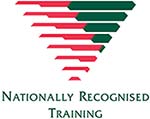This is a Free TAFE for Priority Course. Find out about your eligibility
Empower others to achieve independence, self-reliance, community participation, and wellbeing
Disability workers are part of the backbone of our community. They change people's lives, creating a greater sense of independence and empowerment. The Australian Network of Disability reports that over 4.4 million people currently have a disability. By becoming a disability support worker, you can become part of positive impact in the sector.
On successful completion of the Certificate IV in Disability Support, you'll have the skills to support people with disabilities in an individualised manner, ensuring they have everything they need to thrive day-to-day. You'll learn to use a person-centred approach and follow and contribute to an individualised plan. Plus, you will learn how to work in a range of community settings, including people's homes.
With electives selected in collaboration with local industry partners, you will extend your skills with classes on social inclusion, diverse and complex needs, non-verbal communication techniques, autism and person-centred practices.
You'll learn both online and at our purpose-built campus facilities where you’ll gain skills in understanding different disabilities, rights advocacy, effective communication, support strategies, assessment and planning and much more.
Please note: Students may be required to undertake an assessment of their literacy and numeracy as part of their application process.
 Chisholm is a Registered Training Organisation (RTO) and provides Nationally Recognised Training (NRT). This means you can be assured that our training will provide you with a qualification that is recognised and respected across Australia.
Chisholm is a Registered Training Organisation (RTO) and provides Nationally Recognised Training (NRT). This means you can be assured that our training will provide you with a qualification that is recognised and respected across Australia.
Chisholm courses are subject to minimum and maximum group numbers. Courses may be cancelled or postponed if minimum numbers are not achieved by the start date of the course. Courses may close prior to the start date if the maximum numbers are reached. In that situation, eligible applicants will be offered a place in the next available intake.

